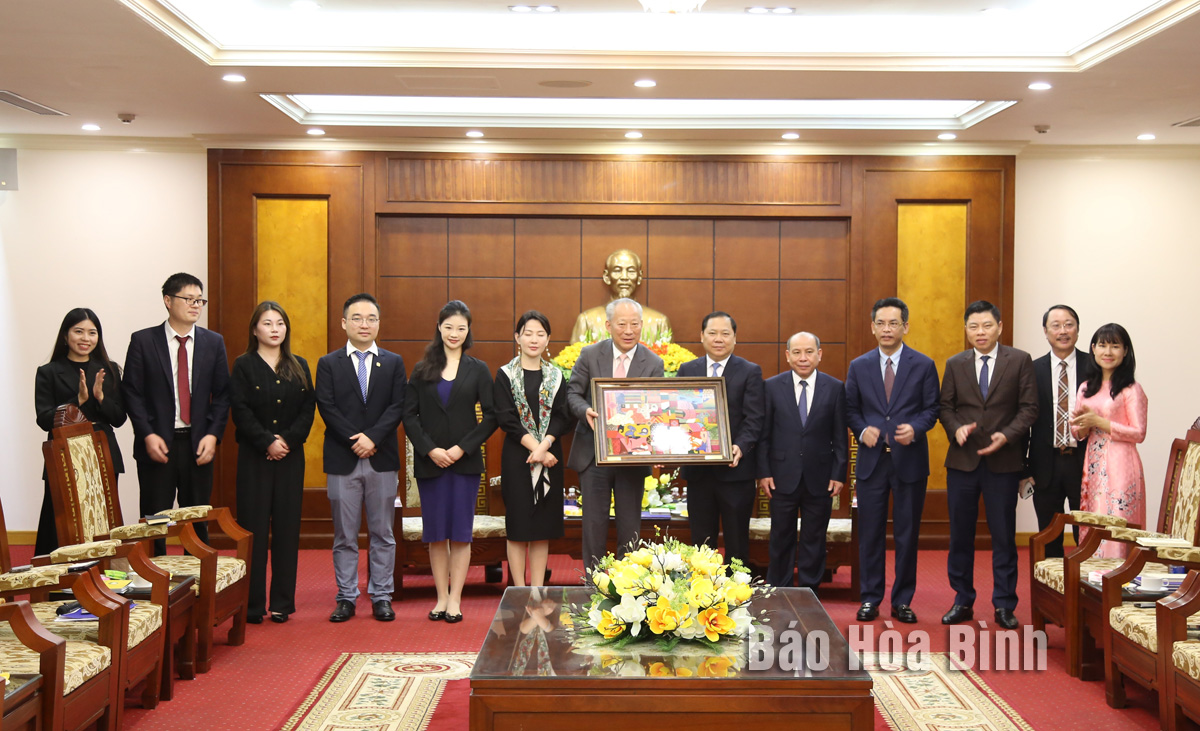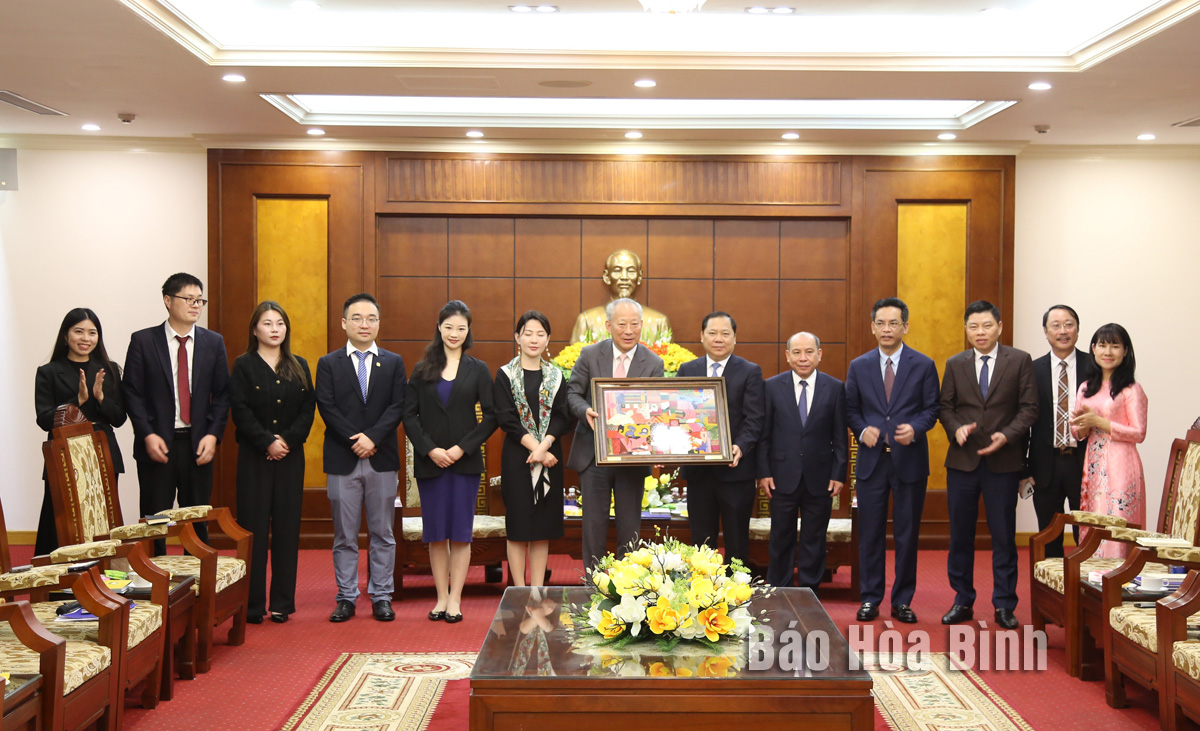
alternate member of the Central Party Committee, Secretary of the Hoa Binh provincial Party Committee Nguyen Phi Long on March 5 had a working session with Yan Jiehe, Founder and Chairman of the China Pacific Construction Group, one of China's largest private corporations in the field of transport infrastructure. Deputy Secretary of the provincial Party Committee, Chairman of the provincial People's Committee Bui Duc Hinh and leaders of provincial departments and sectors also attended the working session.

Representatives of Hoa Binh
province and the China Pacific Construction Group.
At the session, Long welcomed the Chinese group, and
thanked the group’s chairman for choosing Hoa Binh as a destination to survey
and seek cooperation opportunities.
He briefed the guests about the geographical
position, potential, and strengths of the province, emphasising that Hoa Binh
is focusing on developing four pillars - industry, agriculture, tourism
services, and urban development, along with five strategic breakthrough areas -
culture; administrative procedure reform and investment procedures;
infrastructure; digital transformation; and human resources.
In particular, Hoa Binh province is concentrating on
improving transport infrastructure, developing tourism, and infrastructure for
industrial zones and urban areas, aiming for a double-digit growth rate in
2025.
Long hoped that the Chinese group will study and
promote cooperation between the two sides. With his reputation, Yan is expected
to serve as a bridge for Chinese businesses to invest in Hoa Binh province.
For his part, Yan highly appreciated the province's
transport infrastructure and investment attraction policies. Yan affirmed that,
with his position and capacity, he is ready to work as a bridge to introduce
large Chinese enterprises to invest in Hoa Binh, especially in research and
development and transport infrastructure sectors.
He also expressed his desire to cooperate with Hoa
Binh province to implement several projects, ensuring quality, progress, and
efficiency.
According to data from the Hoa Binh Provincial Party Committee, the industrial production index for the first six months of 2025 is estimated to have increased by 20% compared to the same period last year. This marks the highest year-on-year growth rate for this period since 2020.
In the first six months of 2025, Hoa Binh province’s export turnover was estimated at 1.145 billion USD, marking an 18.11% increase compared to the same period in 2024. Import turnover was estimated at $ 804 million, a 17.15% increase, which helped the province maintain a positive trade balance.
The lives of the ethnic minority farmers in Tan Lac district have gradually improved thanks to the new directions in agricultural production. This is a testament to the collective strength fostered through the professional associations and groups implemented by various levels of the district’s Farmers’ Union.
With the motto the "product quality comes first,” after nearly one year of establishment and operation, Muong village’s Clean Food Agricultural and Commercial Cooperative, located in Cau Hamlet, Hung Son Commune (Kim Boi district), has launched reputable, high-quality agricultural products to the market that are well-received by consumers. The products such as Muong village’s pork sausage, salt-cured chicken, and salt-cured pork hocks have gradually carved out a place in the market and they are on the path to obtaining the OCOP certification.
In the past, the phrase "bumper harvest, rock-bottom prices" was a familiar refrain for Vietnamese farmers engaged in fragmented, small-scale agriculture. But today, a new spirit is emerging across rural areas of Hoa Binh province - one of collaboration, organisation, and collective economic models that provide a stable foundation for production.
Maintaining growing area codes and packing facility codes in accordance with regulations is a mandatory requirement for agricultural products to be eligible for export. Recently, the Department of Agriculture and Environment of Hoa Binh province has intensified technical supervision of designated farming areas and packing facilities to safeguard the "green passport" that enables its products to access international markets.



